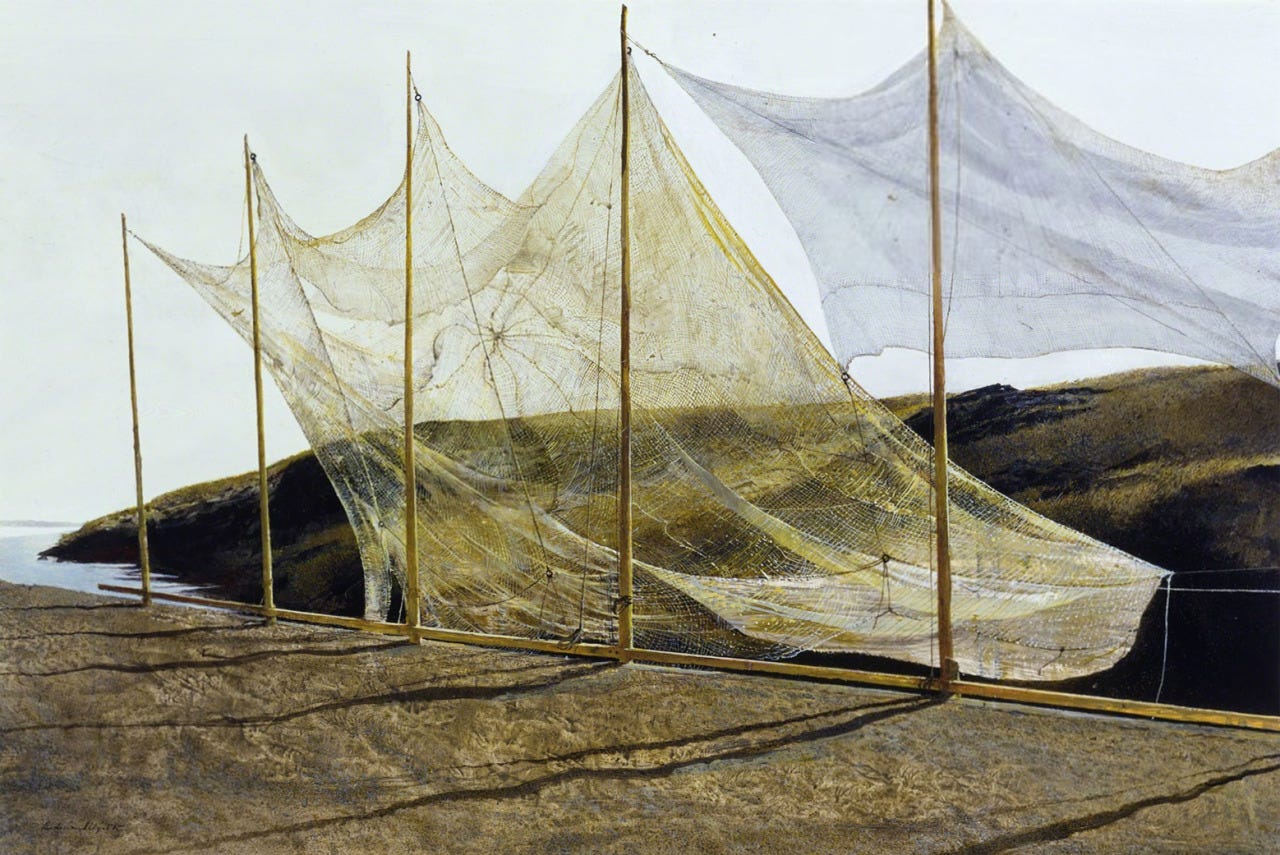Beneath the blistered crust of remnant snow,
Wheel ruts left by the season’s final mow
Assert their order still and form a hard
Column of lines across the white backyard.
My joints, stiff with the cold, succumb to thought.
I view this pattern that my labor wrought,
And try to recollect if my mind, freed
Of weightier things, indulged another need,
While turning back-and-forth a month before,
In solitude within the mower’s roar.
For, as I keep the season’s growth at bay
And smell the cut grass warming with the day,
I try out, also, verses on the air,
Those half-born syllables that rhyme will pair
And meter lend a shapeliness, till sound
Gives to a growing thought its root and ground.
Wordsworth, we’re told, composed his ambling verse
While walking, and would to the hills rehearse
What sentiments the hills themselves inspired.
That sort of thing, we’re also told, is tired;
Footsteps in sympathy with metered feet
Is a contrivance we may not repeat,
If we’re to keep in step with that fast-paced
And all-devouring thing called modern taste.
The world is all unmeasured now. It brings
Word of disaster in its broadcast rings
From everywhere: the fifteen dead in Prague;
The sulfurous, stale, obliterating fog
That glowers over Bahkmut; in the streets
Of Rafah, bodies lie beneath white sheets;
And these are just those things we let come near.
What other news do we not dare to hear?
The tougher sort of poets tell us this:
Our lives are tragic and our arrows miss
All aims outside the chastening of the mind.
Renounce ambitions of a worldly kind,
They counsel us; “Write little, do it well,”
To steel the heart for what ill fortunes tell.
Who, at such words, could fail to hear the sense
Of an enduring moral reticence?
I think, in fact, I may…You can read the rest of this poem in Volume III of Agony. Purchase your copy at agonymagazine.com


